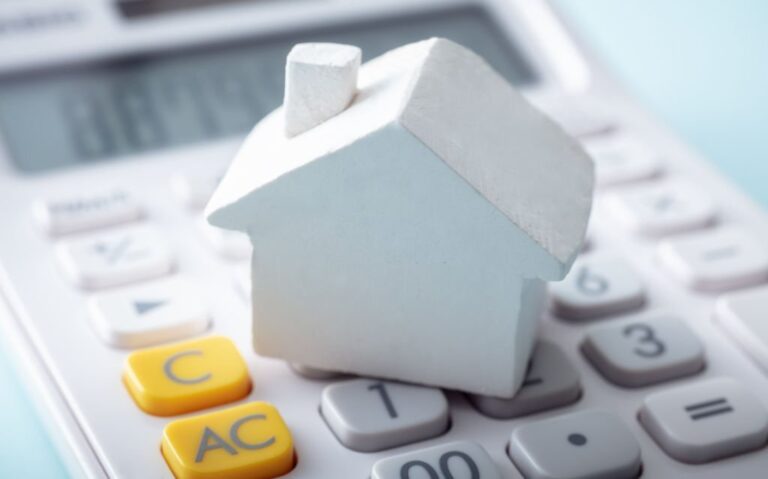Setting the right price for your house or apartment is crucial to maximizing your chances of a successful sale. By understanding the dos and don’ts of pricing, you can ensure that your property is attractively priced and positioned in the market.
Importance of Setting a Competitive Price
One of the key dos of pricing your house or apartment is to set a competitive price. Pricing your property competitively from the beginning can attract potential buyers and generate interest in your listing. A competitive price creates a sense of value and increases the likelihood of receiving offers.
Maximizing chances of a successful sale
Another important aspect is maximizing the chances of a successful sale. Pricing your house or apartment appropriately improves the probability of attracting qualified buyers who are willing to make an offer. By setting the right price, you can increase the likelihood of a quick and successful sale.
When determining the price for your property, it is essential to consider various factors such as the property’s features, size, location, and current market conditions. Conducting thorough research and seeking professional assistance can help you make informed decisions and avoid common pricing pitfalls.
Remember, setting a competitive price is not about overpricing or underpricing your property but rather finding the optimal balance that aligns with market expectations and the value of your property. Overpricing can discourage potential buyers, leading to a prolonged selling process, while underpricing may result in leaving money on the table.
To effectively price your house or apartment, consider conducting a comparative market analysis, researching similar properties in the area, and evaluating recent sale prices. Additionally, seeking professional guidance from real estate agents and appraisers can provide you with valuable insights and expert advice based on their extensive knowledge of the local market and analysis of market trends.
By following these dos and avoiding common pricing mistakes, you can increase your chances of a successful sale and maximize the value of your house or apartment.
Dos and Don’ts for Pricing Your House or Apartment
Dos
- Do consider the location’s impact on value.
• Proximity to amenities, schools, and transportation can increase desirability and justify a higher price.
• Research the neighborhood’s reputation and popularity to gauge its influence on pricing. - Do evaluate the size and condition of your property.
• Ensure that the size of your house or apartment aligns with the market demand in the area.
• Take into account the age, renovations, and maintenance of your property when determining its value. - Do research on the market demand.
• Analyze recent sales and listings to understand the current market conditions and trends.
• Adjust your pricing strategy based on the level of demand, whether it’s a hot market or a slower one. - Do conduct a comparative market analysis.
• Identify similar properties in your area that have recently sold.
• Analyze their sale prices, features, and location to determine a suitable price range for your property. - Do seek professional assistance.
• Real estate agents and appraisers can provide valuable expertise in pricing your property.
• They can analyze market trends, evaluate your property’s features, and guide you in setting an optimal price.
Don’ts
- Don’t overprice your property.
• Overpricing can discourage potential buyers and lead to a prolonged selling process.
• Most buyers are well-informed and have access to comparable property data, so setting a realistic and competitive price is more likely to attract interested buyers.
Should You Overprice Your Property?
When selling a house or apartment, many sellers may consider overpricing their property to leave room for negotiation. However, it is generally not recommended to overprice your property. Overpricing can have negative consequences and may not be an effective strategy in the current real estate market.
Potential Drawbacks of Overpricing
Overpricing your property can lead to several potential drawbacks that can hinder the selling process and impact the final sale price. It’s important to be aware of these drawbacks before deciding on a listing price.
Discouraging Potential Buyers and Prolonged Selling Process
Overpricing your property can discourage potential buyers from showing interest. Buyers are often well-informed and have access to comparable property data. If they perceive a property to be overpriced, they may choose to focus on other listings that are priced more competitively. As a result, overpricing can lead to a prolonged selling process as the property sits on the market for an extended period of time.
Importance of Setting a Realistic and Competitive Price
Setting a realistic and competitive price from the beginning is crucial for attracting interested buyers and generating offers. Pricing your property accurately based on market conditions and comparable sales increases the chances of a successful sale. Buyers are more likely to engage with properties that are priced in line with their perceived value, increasing the likelihood of receiving offers and ultimately achieving a desirable sale price.
Determiningthe Right Price Range
To set the right price for your house or apartment, it’s important to conduct a thorough analysis of the market and consider various factors that influence property value.
Conducting a Comparative Market Analysis
One effective approach to determining the right price range is by conducting a comparative market analysis. This involves researching similar properties in the area that have recently sold. By analyzing their features, size, location, and recent sale prices, you can gain valuable insights into the market value and establish a suitable price range for your property.
Researching Similar Properties in the Area
Researching similar properties in your area is essential for understanding the local market dynamics. Look for properties that are comparable in terms of size, condition, and location. This research will give you a better understanding of the price range at which similar properties have been listed and sold.

Considering Features, Size, Location, and Recent Sale Prices
When determining the right price range, consider various factors such as the features of your property, its size, location, and recent sale prices of similar properties. These factors will help you gauge the market demand and the value of your property in comparison to others in the area.
Identifying a Suitable Price Range Aligned with Market Conditions
Based on the information gathered from your research, identify a suitable price range that aligns with the current market conditions. Take into account the factors mentioned earlier, as well as any specific trends or fluctuations in the real estate market that may influence pricing.
Seeking Professional Assistance
While it is possible to price your house or apartment on your own, seeking professional assistance can provide valuable insights and guidance throughout the pricing process.
Benefits of Professional Guidance
Real estate agents and appraisers have extensive knowledge and experience in pricing properties. They can provide expert guidance based on their understanding of the local market, ensuring that you set an optimal price for your property.
Extensive Knowledge of the Local Market
Real estate professionals stay updated on market trends and have access to comprehensive data. They can analyze market conditions, recent sales, and other relevant factors to help you determine the most appropriate price range for your house or apartment.
Analysis of Market Trends and Property Features
Real estate agents and appraisers can analyze market trends and evaluate the features of your property to accurately assess its value. They consider factors such as location, condition, and demand levels to provide an informed perspective on pricing.
Objective Perspective on Property Value
Seeking professional assistance ensures that you receive an objective perspective on the value of your property. Real estate agents and appraisers can provide an unbiased assessment based on their expertise, helping you avoid the pitfalls of overpricing and set a price that maximizes your chances of a successful sale.
FAQ:
What are the key factors to consider when pricing your house or apartment?
When pricing your property, factors such as location, size, condition, and market demand play a crucial role.
Should you overprice your house or apartment to leave room for negotiation?
Overpricing your property can deter potential buyers and lead to a prolonged selling process. It’s advisable to set a realistic and competitive price.
How can you determine the proper price range for your house or apartment?
Conducting a comparative market analysis, which involves assessing similar properties in your area, can help you determine a suitable price range.
Is it necessary to seek professional assistance when pricing your property?
Consulting with a real estate agent or appraiser can provide valuable insights into local market trends, helping you set an optimal price for your house or apartment.
What are some common pricing mistakes to avoid?
Avoiding emotional attachment, not overpricing, considering market conditions, and staying informed about recent sales are crucial steps to avoid pricing pitfalls.




